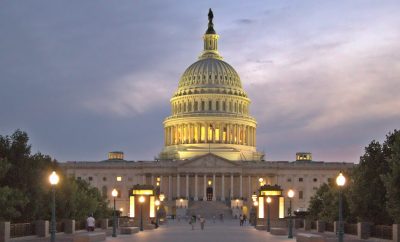
News
Hobby Lobby Wins Big, but Obamacare Doesn’t Really Lose
In a 5-4 decision, the Supreme Court ruled that the contraceptive mandate in the Affordable Care Act, when applied to closely held corporations such as Hobby Lobby, violates the Religious Freedom Restoration Act (RFRA). Justice Samuel Alito wrote the opinion for the majority, which also included Chief Justice John Roberts, Justice Antonin Scalia, Justice Clarence Thomas, and Justice Anthony Kennedy. The opinion was a narrow one–Justice Alito made it clear that they were ruling on the specifics of this case–not opening the floodgates for other religious challenges. His opinion also stressed that this ruling only applies to closely held corporations with fewer than five majority owners. But despite the narrow ruling, this is a clear victory for Hobby Lobby.
The Background
In order to understand how the court arrived at this opinion, we must first understand RFRA, the law under which the contraceptive mandate was challenged. That law states that, “government shall not substantially burden a person’s exercise of religion even if the burden results from a rule of general applicability.” An exception to this law can only be provided if it shows a compelling governmental interest and that governmental interest is achieved using the least restrictive means possible. This means the interest must be achieved in a way that least violates our First Amendment right to religious freedom. Therefore, in order for Hobby Lobby to win this case they had to:
1) Show that a corporation could practice religion and be considered a “person” under this law;
2) Show that Hobby Lobby’s ability to exercise religion had been substantially burdened by the contraceptive mandate;
3) Either show that the contraceptive mandate was not a compelling governmental interest or prove that it was not achieved in the least restrictive means possible.
The Decision
The majority opinion held that a corporation could practice religion because its administration could make business decisions based off of religious beliefs. The majority also claimed that because companies do donate to charities, they are capable of caring about values that transcend profits–such as religion. Finally, they pointed out that in certain cases, Congress has specifically added clauses into laws specifying that corporations would not qualify, and would have done exactly that if they did not intend for corporations to be covered by RFRA.
On the other hand, the dissent, written by Justice Ruth Bader Ginsburg, argued that a corporation cannot exercise religion because there is no clear way to decide who determines its religion. Would it be 51 percent of the shareholders? Or the majority shareholder? The CEO? This objection is why the majority applied this ruling only to closely held corporations with five or fewer owners, such as Hobby Lobby. These are often family-owned and can feasibly run their company based off of religious issues.
The owners of Hobby Lobby, the Green family, believe the contraceptive drugs they were required to include in their employees’ health coverage are similar to abortions. Their religious beliefs state that life starts at conception. Therefore, their ability to exercise their religion is substantially burdened by the contraceptive mandate.
Once the majority established that Hobby Lobby could be considered a person under RFRA and that it faced a substantial religious burden, they had to determine if the contraceptive mandate could be considered a legal exception. The majority conceded that providing contraceptive coverage was a compelling government interest, but also said that it was not done in the least restrictive way. They assert that because there is a penalty for not providing the contraceptives, the Greens were forced to either act against their religion or pay a significant fine. The majority opinion says that this is not the least restrictive way to provide contraception coverage, as the government could just provide the contraceptives itself and allow the Greens to respect their beliefs.
Another argument brought up in the dissent is that this ruling could lead to religious exemptions for other issues, such as coverage for immunizations and blood transfusions. However, the majority held that they were only ruling on the contraception mandate, stating that this ruling does not mean they would rule the same way for any other health care challenge under RFRA. The opinion specifically cites immunizations as an example of governmental interest that is compelling and is reached by the least restrictive means possible.
The Impact
Now that we understand the ruling, let’s examine its impact, particularly on the Affordable Care Act. If we look at the ACA’s overall ability to provide healthcare, the impact is minimal. The ruling only strikes down one mandate, and says the government can still provide contraceptives itself. So in a way, it could expand governmental coverage of healthcare. Where this hurts the ACA is in the political battlefield, where the fact this was a very narrow ruling means almost nothing. All that matters is that the Democrat’s health care law overreached. This issue could very well serve as a rallying point for conservatives in the 2014 mid-term elections.
Already there are headlines popping up that make it seem like the Supreme Court ruled against the ACA. But at the end of the day, all the Supreme Court did was curb a small portion of the contraception mandate. They didn’t rule any mandate unconstitutional. They just provided a religious exception, while still leaving routes open for women to get the coverage the ACA promises.
—
Matt DeWilde (@matt_dewilde25) is a member of the American University class of 2016 majoring in politics and considering going to law school. He loves writing about politics, reading, watching Netflix, and long walks on the beach. Contact Matt at staff@LawStreetMedia.com.
Featured image courtesy of [Nate Grigg via Flickr]








Comments